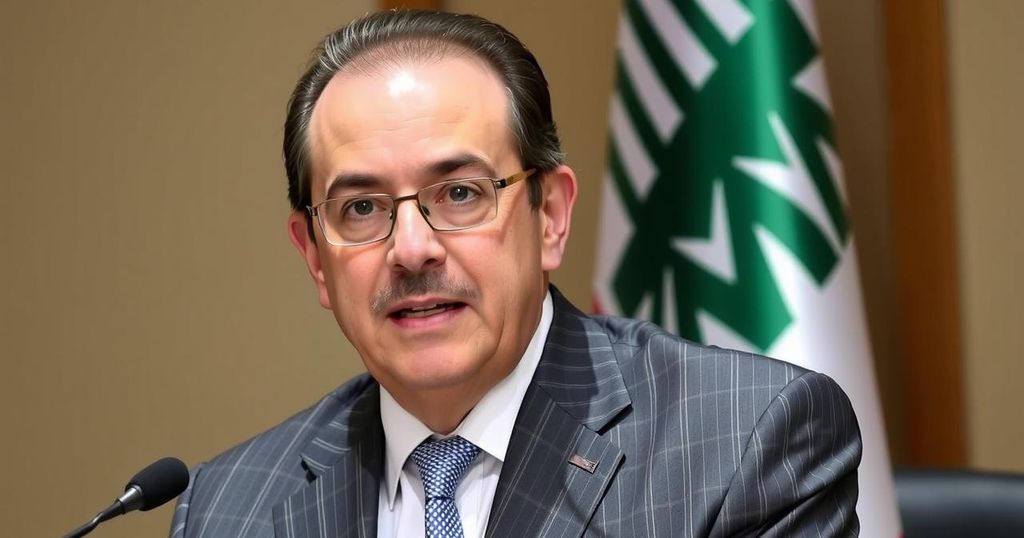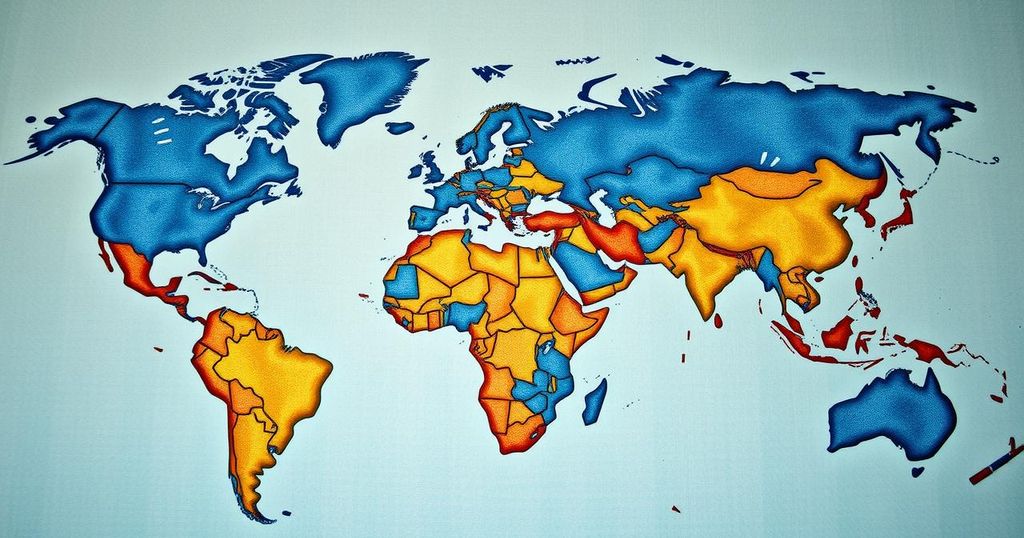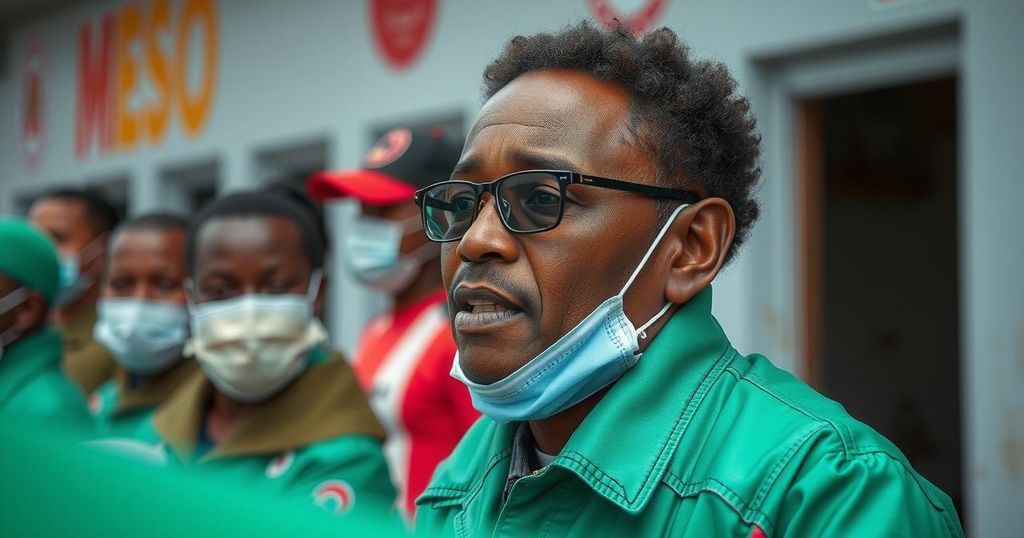World news
AFP, AO, AOUN, ASIA, COURT OF JUSTICE, DEMOCRACY, EUROPE, HAGUE, HAMAS, HEZBOLLAH, HUMAN RIGHTS, IC, ICJ, INTERNATIONAL COURT OF JUSTICE, ISRAEL, LEBANON, MIDDLE EAST, MIKATI, NAJIB MIKATI, NETHERLANDS, NORTH AMERICA, OPPOSITION, POLITICS, PRESIDENTIAL ELECTION, THE HAGUE, UNITED STATES
Aisha Khan
0 Comments
Nawaf Salam Appointed as Prime Minister of Lebanon Amid Economic Crisis
Lebanese President Joseph Aoun appointed Nawaf Salam, an ICJ judge, as the new prime minister to tackle the country’s economic crisis. This follows two years of caretaker governance. Salam received majority support from lawmakers, setting the stage for government formation amid significant challenges, including reforms and reconstruction initiatives. His nomination is perceived as a response to the public’s demand for purity in governance, addressing concerns over corruption and political cronyism.
Lebanese President Joseph Aoun announced the appointment of Nawaf Salam, a judge at the International Court of Justice in The Hague, as the new prime minister tasked with forming a government aimed at addressing the country’s profound economic crisis. This decision follows two years of a caretaker government and necessitated support from the majority of Lebanese lawmakers, with 84 members backing Salam, while others continued to endorse interim Prime Minister Najib Mikati. Aoun expressed hope that the formation of the new government would proceed smoothly and expeditiously as Lebanon prepares to address significant challenges, including vital reforms and reconstruction efforts in the aftermath of the ongoing economic turmoil and military conflicts.
Salam’s nomination is viewed as a movement towards a purely Lebanese initiative, reflecting the public’s desire for an end to corruption and nepotism that has long plagued the political landscape. His nomination has garnered support as an impartial figure capable of instituting necessary reforms to restore international donor confidence and lift Lebanon from its historic financial collapse. Challenges ahead include not only economic recovery but also the commitment to disarmament agreements involving Hezbollah and the Lebanese military’s deployment in the southern regions previously affected by conflict. Criticism towards Mikati centers on his association with the traditional political elite, which many believe has contributed to the country’s current crises.
The current political climate has been significantly influenced by recent events, including the weakening of Hezbollah following its involvement in a conflict with Israel and the political dynamics resulting from the changes in Syria’s leadership. The selection of Nawaf Salam also reflects a larger strategic move within Lebanon’s fragmented political landscape as lawmakers strive to form a consensus-driven government. The lengthy process of coalition-building remains a potential hurdle, as Lebanon has historically faced challenges in swift government formations due to deep political divisions.
Lebanon has been entrenched in a severe economic crisis exacerbated by prolonged political instability and the impacts of military conflicts in the region. Following two years of a caretaker administration, the need for a functional government has become critical. The appointment of a prime minister reflects a step towards re-establishing governance and addressing public demands for reform. The political landscape is characterized by factional disputes, particularly between traditional political entities and newer independent actors responding to widespread public dissatisfaction. Recent geopolitical developments have also influenced local dynamics, primarily due to Hezbollah’s changing influence and fluctuations in regional alliances.
The appointment of Nawaf Salam as prime minister marks a significant development in Lebanon’s ongoing effort to restore governance and implement reforms necessary to navigate the profound economic crisis. The support Salam received from a majority of lawmakers underscores a potential shift towards a more independent political approach. However, the task ahead remains daunting, with challenges that include not only economic recovery but also adherence to international agreements aimed at restoring stability within Lebanon.
Original Source: www.hindustantimes.com




Post Comment